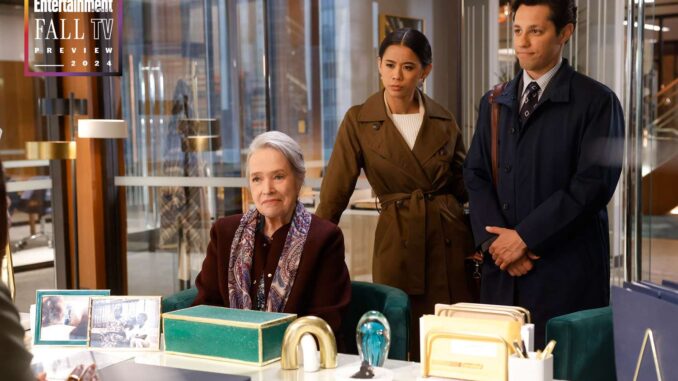
The Matlock Metamorphosis: Why Kathy Bates Isn’t Rebooting, She’s Reinventing
The word “reboot” often conjures a predictable cycle in popular culture: a familiar story re-told, perhaps with a new cast, a modern sheen, or a grittier edge, but fundamentally covering the same ground. Think of countless superhero origin stories, or classic sitcoms reimagined. So, when news surfaced of a new Matlock series, starring the incomparable Kathy Bates, a collective groan from purists and an eye-roll from cynics might have been understandable. How could anyone possibly reboot Andy Griffith’s folksy, hot-dog-loving legal eagle, Ben Matlock, without it feeling like a pale imitation? The answer, as it turns out, is simple: they’re not. The new Matlock isn’t a reboot; it’s a brilliant thematic reinterpretation, underpinned by a compelling “twist” that radically redefines the very essence of the show.
To understand why this isn’t a reboot, we must first recall what the original Matlock was. Andy Griffith’s Ben Matlock was more than a character; he was an institution, a folksy legal eagle who, with a twinkle in his eye and a hot dog in hand, routinely outsmarted slick prosecutors and exposed the real killer. His brilliance lay in his unassuming demeanor, his Southern charm masking a razor-sharp mind and an encyclopedic knowledge of the law. The show was comfort food television: predictable, heartwarming, and always satisfying as the truth inevitably triumphed. A direct reboot would necessitate finding an actor capable of replicating Griffith’s unique blend of down-home wisdom and cunning, a task so formidable it borders on sacrilege. It would also force a rehash of the same formula, struggling to justify its existence beyond mere nostalgia.
Enter Kathy Bates, a titan of stage and screen, who steps into a role that, at first glance, might seem like an impossible pair of seersucker shoes to fill. But the crucial distinction, the very “twist” that elevates this new iteration beyond a simple rehash, lies not in who Matlock is as a lawyer, but in who she becomes. Bates plays Madeline Matlock, an older woman who, after decades of living a seemingly ordinary life, decides to attend law school in her twilight years. She isn’t inheriting a practice, nor is she a seasoned legal veteran returning to the fray. Instead, she’s a late-blooming prodigy, a legal neophyte whose age and unassuming appearance become her greatest assets.
This twist, this profound shift in Madeline’s origin story, is the narrative linchpin that makes the series a reinvention rather than a reboot. Ben Matlock was underestimated because he chose to appear simple; his genius was always fully formed. Madeline Matlock is genuinely underestimated because she is new to the game, a perpetual underdog navigating the intimidating corridors of justice with the fresh eyes of a student and the lived experience of a lifetime. Her journey isn’t about maintaining a legacy; it’s about forging one. It’s about the inherent wisdom gained over decades, applied to a new discipline, proving that intellect and sharp-wittedness aren’t exclusive to youth or established careers.
This radical departure allows the show to explore themes entirely distinct from its predecessor. Where Ben Matlock’s cases often focused on straightforward legal puzzles, Madeline’s narrative can delve into ageism, the power of reinvention, the quiet strength found in being overlooked, and the unique perspective that comes from a life lived before the courtroom. Her “underdog” status is not a facade but a genuine condition, making her triumphs all the more resonant. She might still bring down the powerful with an unexpected cross-examination, but her motivation, her learning curve, and the societal perceptions she battles are entirely her own. The series becomes a character study of a woman reclaiming her potential, rather than merely a vehicle for legal exposition.
In essence, the new Matlock uses the familiar surname as a thematic anchor, a nod to the archetype of the underestimated legal genius, rather than a direct character continuation. Kathy Bates’s Madeline Matlock isn’t simply a different actor playing the same role; she is a fundamentally different character operating under a shared, evocative name. This isn’t a reboot designed to capitalize on nostalgia; it’s a sophisticated reinvention that leverages a classic premise to tell a fresh, modern story about second acts, hidden brilliance, and the enduring power of an outsider’s perspective. It’s a Matlock for a new generation, proving that sometimes, the most original ideas spring not from repeating the past, but from twisting it into something entirely new.
